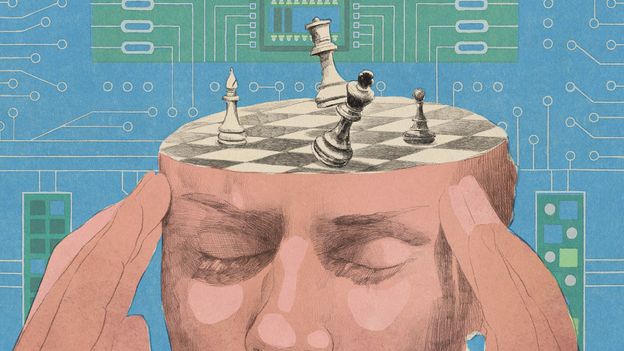Ahh, it's nice to have such spare time as to be able to finally clear all the unread open tabs on my phone. Please ignore the passing reference to Musky here, who is totally irrelevant.
What happens if Arbaugh first thinks of moving his pawn to d3 but, within a fraction of a second, changes his mind and realises he would rather move it to d4? Or what if he is running through possibilities in his imagination, and the implant mistakenly interprets one as an intention? The stakes are low on a chess board, but if these implants became more common, the question of personal responsibility becomes more fraught. What if, for example, bodily harm to another person was caused by an implant-controlled action?
That's in terms of who-do-we-blame, of course, not, should-we-develop-this, because obviously we should because paralysed people deserve to not be paralysed.
The crucial question in the contemplation conundrum is when does a "happening of imagination" turn to "intentional imagination to act"? When I apply my imagination to contemplate what words to use in this sentence, this is itself an intentional process. The imagination directed towards action – typing the words – is also intentional.
In terms of neuroscience, differentiating between imagination and intention is nearly impossible. A study conducted in 2012 by one group of neuroscientists concluded that there are no neural events that qualify as "intentions to act". Without the capability to recognise neural patterns that mark this transition in someone like Arbaugh, it could be unclear which imagined scenario is the cause for effect in the physical world. This allows partial responsibility and ownership of action to fall on the implant, and questioning again whether the actions are truly his, and whether they are a part of his personhood?
I wonder if the distinction between the mental imaginings of speculation and actual intention is subtle or gross. I would have guessed the latter, but it seems not so. I'm not sure the philosophy is terribly interesting here though, since we can and do already cause unintended effects with technology : if a ship at sea develops a fault and sinks, we don't blame the ship.

There are no comments yet.